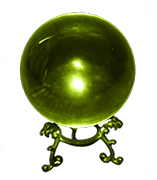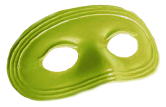Sample Chapter -
Mastery
This essay’s subject is ‘technical mastery.’ When we wrote it down, I suppose we meant the mastery of sleight-of-hand. I could be wrong.
Anyway, I thought I’d use this article to talk about the technical mastery involved in any kind of art or performance, not just magic. When I was a much younger man, I trained as an actor and dancer. We would spend at least 2 hours each day in the dance studio, working to perfect our technique as dancers. Two or three times a week, we would spend an hour or two in voice classes, working on our speaking voices. Some had aspirations toward performing in musical theater, and they would take at least one voice for singers class several times a week.
That was just the basic training — the conditioning of the body and voice. Beyond that, we would take courses in dialects, so we could reproduce the accents of different characters proficiently. Courses in pantomime to further train our physical expressivity. All in the pursuit of technical mastery. Why? Because that’s what it takes for anyone to become an accomplished performer.
Real creativity can’t begin until technical mastery has been achieved. There is a popular notion that “talented individuals” – Mozart the child prodigy is an example often put forth – are “gifted” with their creativity. Not true. What they HAVE been gifted with is a passionate interest in their art – which in turn drives them to relentless pursuit of technical mastery. That “child prodigy” Mozart had, at the age of ten, already been practicing and playing his various keyboard instruments for many hours each and every day since he began at age 4. Let’s see…6 years times 360 days, times 6 hours…that’s over 70,000 hours of practice before the age of 10! And his early works are, by all accounts, no better than others of the time. It wasn’t until he had continued that rigorous schedule for another dozen years or more, until he had made thorough studies of many other great composers who had gone before him, that he began to show real mastery as a composer, and the creative genius for which we remember him today.
So, my question to you for this evening is this: How serious are you about mastering the art of magic? Not everyone has to become a master…there is plenty of room in our community of magic for amateurs, fans and dabblers at all levels. It is fun to learn a few simple tricks and share them with friends. It is fun to read books about the great masters, and books filled with new tricks and sleight of hand techniques. Sometimes the rankest of amateurs can make a significant contribution in the form of a new trick or idea. But to truly master the art of magic – you must put in the time to achieve technical mastery. There are no shortcuts. A good teacher or teachers can help you avoid wasting time on the journey to mastery – but you still have to get in that 10,000 hours of dedicated, conscious practice.
I think it is only then…once the artist has reached mastery, that magic can become a true art. Just as the young piano student practicing their scales and études isn’t yet much more than an apprentice, or the 4th or 5th year student who has become good enough to play in the high school orchestra can really not be said to be at more than the journeyman craftsman – and so it is with magic. Until you have mastered the craft – the technical mastery of the sleight of hand, vocal nuance, ability to misdirect using your body and so on — you can’t really claim to be a true artist. Once you have mastered all those things — well, then you will know it, and so will everyone who sees you perform. There is a reason we call performers like Jeff McBride, Lance Burton, Eugene Burger, Mac King and Penn & Teller “Master Magicians.” It’s not a title easily – or quickly – learned. But I think it’s one worth shooting for, if you’re really serious about your magic.


